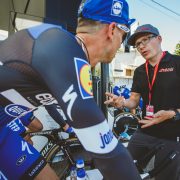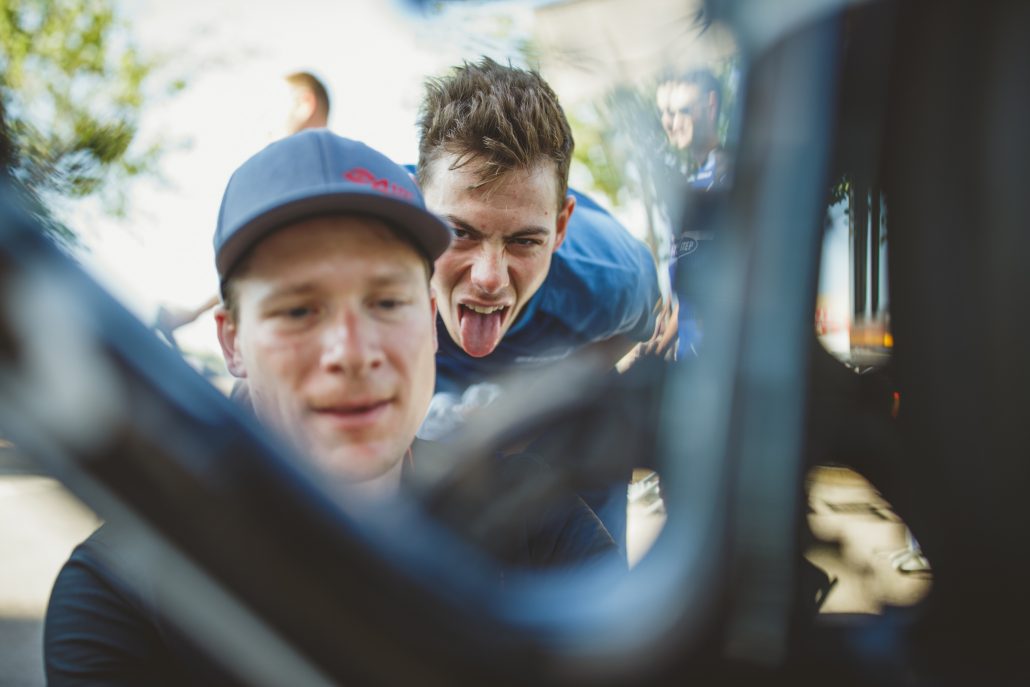A Q&A with Karel Bergmann, Our Technical Adviser to Etixx-Quick-Step on his thoughts on the Vuelta
You just got back from the Vuelta. What are your immediate thoughts after the race?
The Vuelta was a great race. I think it was probably the most difficult grand tour of the season from a sporting perspective. The Giro had a couple of epic stages through Val Gardena and Colle dell’Agnello, but the Vuelta just kept on delivering with epic finales. From a GC perspective it was definitely the most riveting – it really came down to a battle in the final days.
From our perspective it went very well. PRECISION performed very well for the riders, and Etixx – Quick-Step was definitely on their A-game.
It was a very successful Grand Tour for Etixx-Quick-Step – four stage wins and seventh overall for David de la Cruz. How was the team spirit after the race?
Team spirit was very high throughout the race, things started off on the right foot with stage wins from Gianni. A day in red with David de la Cruz and then a great win for Gian Luca in Formigal kept spirits high. The nature of the race made itself apparent towards the end. You could tell that riders on all teams were getting really tired towards the end, and the stage ending in Formigal really highlighted the point. I don’t think I’ve ever seen the groupetto come home nearly an hour after the lead group.
During the race David de la Cruz shared his data up the final climb of stage 10. You also shared your data up the same climb. There was a bit of a difference. Do you have a newfound respect from riders seeing this comparison?
I’ve been working with these guys for a while know, so I have tonnes of respect for what they’re capable of, but I wouldn’t exactly call it new-found. I also had a sneaky suspicion that I might come in on the losing end of this race.
I think the truly impressive part of what we saw on the Aubisque was that I tailored my ride to give me a nice warm-up on the way to the base of the climb so that I could have a shot at an optimal performance. For David it was the 4th climb of the day, 14 stages into a grand tour – now that’s impressive!
How do the riders use their power numbers during races? Do they have an idea before the stage what kind of numbers they want to put out?
For riders, the power meter is most important on long climbs and time trials where they need to be able to pace their efforts. On the flats, the peloton dictates the pace. As important as power meters have become in bike racing, you still need to hold the wheel in front yours, or it can be game over.
What would be your lasting memory from the Vuelta?
For me, it’s two things, the first was the great camaraderie within the Vuelta squad, and being able to experience it with guys that have become more than co-workers over the past season. The personal attachments I’ve made over the season really took the experience to a new level.
The second was riding in Spain. The terrain was amazing, but I think the Spanish drivers are the best I’ve experienced around cyclists. They are courteous and friendly, and they share the road like nowhere else.




